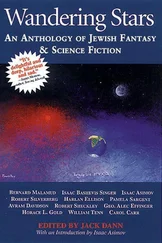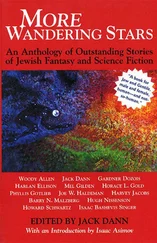He heard footsteps overhead—Mom moving around in the kitchen. He blinked his purple gaze and almost decided to make her hold still—but instead he went up to the attic, and, after looking out the circular window for a while at the front lawn and the dusty road and Henderson’s tip-waving wheatfield beyond, he curled into an unlikely shape and went partly to sleep.
Soon people would be coming for television, he heard Mom think.
He went more to sleep. He liked television night. Aunt Amy had always liked television a lot, so one time he had thought some for her, and a few other people had been there at the time, and Aunt Amy had felt disappointed when they wanted to leave. He’d done something to them for that—and now everybody came to television.
He liked all the attention he got when they did.
Anthony’s father came home around six-thirty, looking tired and dirty and bloody. He’d been over in Dunn’s pasture with the other men, helping pick out the cow to be slaughtered this month, and doing the job, and then butchering the meat and salting it away in Soames’s icehouse. Not a job he cared for, but every man had his turn. Yesterday he had helped scythe down old McIntyre’s wheat. Tomorrow they would start threshing. By hand. Everything in Peaksville had to be done by hand.
He kissed his wife on the cheek and sat down at the kitchen table. He smiled and said, “Where’s Anthony?”
“Around someplace,” Mom said.
Aunt Amy was over at the wood-burning stove, stirring the big pot of peas. Mom went back to the oven and opened it and basted the roast.
“Well, it’s been a good day,” Dad said. By rote. Then he looked at the mixing bowl and breadboard on the table. He sniffed at the dough. “M’m,” he said. “I could eat a loaf all by myself, I’m so hungry.”
“No one told Dan Hollis about its being a birthday party, did they?” his wife asked.
“Nope. We kept as quiet as mummies.”
“We’ve fixed up such a lovely surprise!”
“Um? What?”
“Well . . . you know how much Dan likes music. Well, last week Thelma Dunn found a record in her attic!”
“No!”
“Yes! And we had Ethel sort of ask you know, without really asking—if he had that one. And he said no. Isn’t that a wonderful surprise?”
“Well, now, it sure is. A record, imagine! That’s a real nice thing to find! What record is it?”
“Perry Como, singing ‘You Are My Sunshine.’”
“Well, I’ll be darned. I always liked that tune.” Some raw carrots were lying on the table. Dad picked up a small one, scrubbed it on his chest, and took a bite. “How did Thelma happen to find it?”
“Oh, you know—just looking around for new things.”
“M’m.” Dad chewed the carrot. “Say, who has that picture we found a while back? I kind of liked it—that old clipper sailing along ..."
“The Smiths. Next week the Sipiches get it, and they give the Smiths old McIntyre’s music-box, and we give the Sipiches . . .“ And she went down the tentative order of things that would exchange hands among the women at church this Sunday.
He nodded. “Looks like we can’t have the picture for a while, I guess. Look, honey, you might try to get that detective book back from the Reillys. I was so busy the week we had it, I never got to finish all the stories.”
“I’ll try,” his wife said doubtfully. “But I hear the Van Husens have a stereoscope they found in the cellar.” Her voice was just a little accusing. “They had it two whole months before they told anybody about it.”
“Say,” Dad said, looking interested, “that’d be nice, too. Lots of pictures?”
“I suppose so. I’ll see on Sunday. I’d like to have it—but we still owe the Van Husens for their canary. I don’t know why that bird had to pick our house to die—it must have been sick when we got it. Now there’s just no satisfying Betty Van Husen. She even hinted she’d like our piano for a while!”
“Well, honey, you try for the stereoscope—or just anything you think we’ll like.” At last he swallowed the carrot. It had been a little young and tough. Anthony’s whims about the weather made it so that people never knew what crops would come up, or what shape they’d be in if they did. All they could do was plant a lot; and always enough of something came up any one season to live on. Just once there had been a grain surplus; tons of it had been hauled to the edge of Peaksville and dumped off into the nothingness. Otherwise, nobody could have breathed when it started to spoil.
“You know,” Dad went on, “it’s nice to have the new things around. It’s nice to think that there’s probably still a lot of stuff nobody’s found yet, in cellars and attics and barns and down behind things. They help, somehow. As much as anything can help—”
“Sh-h!” Mom glanced nervously around.
“Oh,” Dad said, smiling hastily, “it’s all right! The new things are good! It’s nice to be able to have something around you’ve never seen before, and know that something you’ve given somebody else is making them happy. That’s a real good thing.”
“A good thing,” his wife echoed.
“Pretty soon,” Aunt Amy said, from the stove, “there won’t be any more new things. We’ll have found everything there is to find. Goodness, that’ll be too bad.”
“Amy!”
“Well . . .“ Her pale eyes were shallow and fixed, a sign of her recurrent vagueness. “It will be kind of a shame—no new things—”
“Don’t talk like that,” Mom said, trembling. “Amy, be quiet!”
“It’s good,” said Dad, in the loud, familiar, wanting-to-be-overheard tone of voice. “Such talk is good. It’s okay, honey don’t you see? It’s good for Amy to talk any way she wants. It’s good for her to feel bad. Everything’s good. Everything has to be good.”
Anthony’s mother was pale. And so was Aunt Amy the peril of the moment had suddenly penetrated the clouds surrounding her mind. Sometimes it was difficult to handle words so that they might not prove disastrous. You just never knew. There were so many things it was wise not to say, or even think—but remonstration for saying or thinking them might be just as bad, if Anthony heard and decided to do anything about it. You could just never tell what Anthony was liable to do.
Everything had to be good. Had to be fine just as it was, even if it wasn’t. Always. Because any change might be worse. So terribly much worse.
“Oh, my goodness, yes, of course it’s good,” Mom said. “You talk any way you want to, Amy, and it’s just fine. Of course, you want to remember that some ways are better than others.”
Aunt Amy stirred the peas, fright in her pale eyes.
“Oh, yes,” she said. “But I don’t feel like talking right now. It it’s good that I don’t feel like talking.”
Dad said tiredly, smiling, “I’m going out and wash up.”
They started arriving around eight o’clock. By that time Mom and Aunt Amy had the big table in the dining room set, and two more tables off to the side. The candles were burning, and the chairs situated, and Dad had a big fire going in the fireplace.
The first to arrive were the Sipiches, John and Mary. John wore his best suit, and was well scrubbed and pink-faced after his day in McIntyre’s pasture. The suit was neatly pressed but getting threadbare at elbows and cuffs. Old McIntyre was working on a loom, designing it out of schoolbooks, but so far it was slow going. McIntyre was a capable man with wood and tools, but a loom was a big order when you couldn’t get metal parts. McIntyre had been one of the ones who, at first, had wanted to try to get Anthony to make things the villagers needed, like clothes and canned goods and medical supplies and gasoline. Since then he felt that what had happened to the whole Terrance family and Joe Kinney was his fault, and he worked hard trying to make it up to the rest of them. And since then no one had tried to get Anthony to do anything.
Читать дальше
![Альфред Бестер Star of Stars [Anthology] обложка книги](/books/398777/alfred-bester-star-of-stars-anthology-cover.webp)

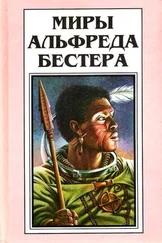
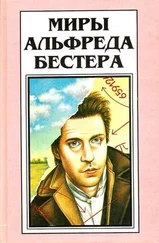
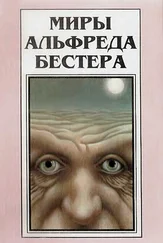
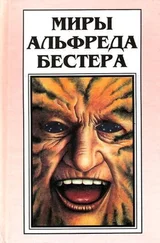

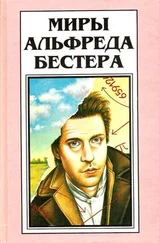
![Альфред Бестер - Миры Альфреда Бестера. Том 3 [Авторский сборник]](/books/405485/alfred-bester-miry-alfreda-bestera-tom-3-avtor-thumb.webp)
